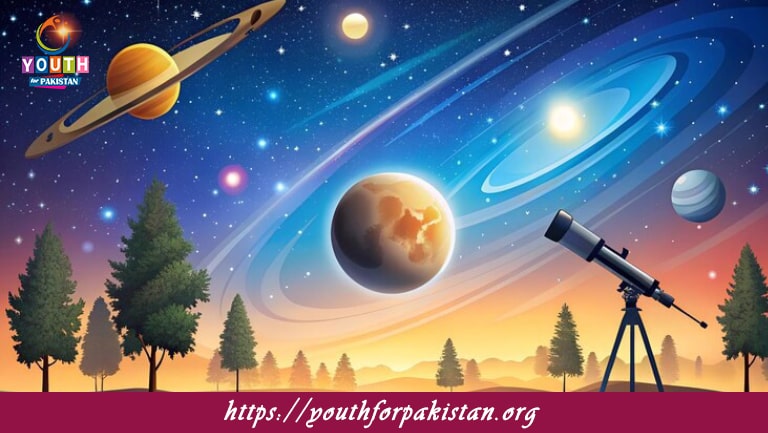Welcome to the Inner Planets MCQs with Answers. In this post, we are sharing Inner Planets Multiple Choice Questions and Answers in Astronomy section for various competitive exams in Pakistan. Each question offers a chance to enhance your knowledge regarding Inner Planets online MCQs Test.
Which of the following planets is closest to the Sun?
a) Venus
b) Earth
c) Mercury
d) Mars
Which inner planet has the highest surface temperatures due to its thick carbon dioxide atmosphere?
a) Mars
b) Earth
c) Venus
d) Mercury
Which planet is known for having the largest volcano in the Solar System, Olympus Mons?
a) Earth
b) Venus
c) Mars
d) Mercury
Which inner planet has the most similar length of day to Earth?
a) Venus
b) Mars
c) Mercury
d) Venus
Which planet is known as the “Red Planet” due to its iron oxide surface?
a) Mercury
b) Venus
c) Mars
d) Earth
Which inner planet has no moons?
a) Venus
b) Mars
c) Earth
d) Mercury
Which planet has the longest day of all the inner planets, with a rotation period of about 243 Earth days?
a) Mercury
b) Venus
c) Earth
d) Mars
Which inner planet is the smallest in our Solar System?
a) Earth
b) Venus
c) Mercury
d) Mars
Which inner planet has the highest gravity relative to its size?
a) Earth
b) Venus
c) Mars
d) Mercury
Which planet has an atmosphere composed mainly of nitrogen and oxygen, similar to Earth?
a) Venus
b) Mars
c) Earth
d) Mercury
Which planet’s atmosphere is primarily carbon dioxide and has a runaway greenhouse effect?
a) Mars
b) Earth
c) Venus
d) Mercury
Which inner planet has a surface characterized by large iron oxide dust storms?
a) Venus
b) Earth
c) Mars
d) Mercury
Which planet has a core believed to be mostly iron?
a) Venus
b) Mars
c) Mercury
d) Earth
Which inner planet has extreme temperature variations between day and night?
a) Venus
b) Earth
c) Mercury
d) Mars
Which planet is known for its distinct phases when observed from Earth, similar to the Moon?
a) Mars
b) Venus
c) Mercury
d) Earth
Which planet has the most noticeable axial tilt, causing significant seasonal changes?
a) Earth
b) Mars
c) Venus
d) Mercury
Which inner planet has the smallest moon, Phobos?
a) Earth
b) Venus
c) Mars
d) Mercury
Which planet is known for its retrograde rotation, where the Sun rises in the west and sets in the east?
a) Earth
b) Venus
c) Mars
d) Mercury
Which inner planet has a weak magnetic field, providing little protection from solar winds?
a) Venus
b) Earth
c) Mercury
d) Mars
Which planet is known for its large polar ice caps?
a) Venus
b) Earth
c) Mars
d) Mercury
Which planet has an atmosphere so thick that it creates a high-pressure environment at the surface?
a) Venus
b) Mars
c) Mercury
d) Earth
Which planet has the most diverse surface features, including plains, mountains, and impact craters?
a) Mercury
b) Venus
c) Mars
d) Earth
Which inner planet has the largest crater, the Caloris Basin?
a) Earth
b) Venus
c) Mercury
d) Mars
Which planet is known for having a tilted magnetic field that is different from its rotation axis?
a) Mars
b) Earth
c) Venus
d) Mercury
Which planet has surface features resembling both volcanic plains and impact basins?
a) Mars
b) Venus
c) Earth
d) Mercury
Which planet has an average surface temperature high enough to melt lead?
a) Mercury
b) Venus
c) Mars
d) Earth
Which planet has the highest known volcano, Olympus Mons, and the longest canyon, Valles Marineris?
a) Earth
b) Venus
c) Mars
d) Mercury
Which planet has an orbit that is more elliptical than the other inner planets?
a) Mercury
b) Venus
c) Mars
d) Earth
Which planet has been explored by the most spacecraft, including the Mars rovers?
a) Earth
b) Venus
c) Mars
d) Mercury
Which inner planet has an average density similar to Earth’s?
a) Venus
b) Mars
c) Mercury
d) Earth
Which planet is often referred to as Earth’s “sister planet” due to its similar size and composition?
a) Mars
b) Venus
c) Mercury
d) Earth
Which inner planet has the coldest average temperatures, with polar ice caps and seasonal variations?
a) Mercury
b) Venus
c) Mars
d) Earth
Which planet has a highly reflective cloud cover that creates a strong greenhouse effect?
a) Mars
b) Venus
c) Mercury
d) Earth
Which inner planet has a day that is longer than its year?
a) Venus
b) Mars
c) Earth
d) Mercury
Which planet has the most active geology, including volcanoes, earthquakes, and shifting plates?
a) Mars
b) Earth
c) Venus
d) Mercury
Which planet’s surface has been heavily shaped by volcanic activity and large impacts?
a) Venus
b) Mars
c) Earth
d) Mercury
Which planet has the least atmosphere of the inner planets, leading to extreme temperature fluctuations?
a) Earth
b) Venus
c) Mercury
d) Mars
Which inner planet is known for its polar ice caps, seasonal changes, and evidence of ancient water flow?
a) Earth
b) Mars
c) Venus
d) Mercury
Which planet has an atmosphere with thick clouds of sulfuric acid?
a) Earth
b) Venus
c) Mars
d) Mercury
Which planet’s surface features vast deserts, mountain ranges, and extensive impact craters?
a) Earth
b) Venus
c) Mars
d) Mercury
Which inner planet has a surface temperature range that can exceed 1,000°C (1,832°F)?
a) Earth
b) Venus
c) Mars
d) Mercury
If you are interested to enhance your knowledge regarding Physics, Chemistry, Computer, and Biology please click on the link of each category, you will be redirected to dedicated website for each category.








